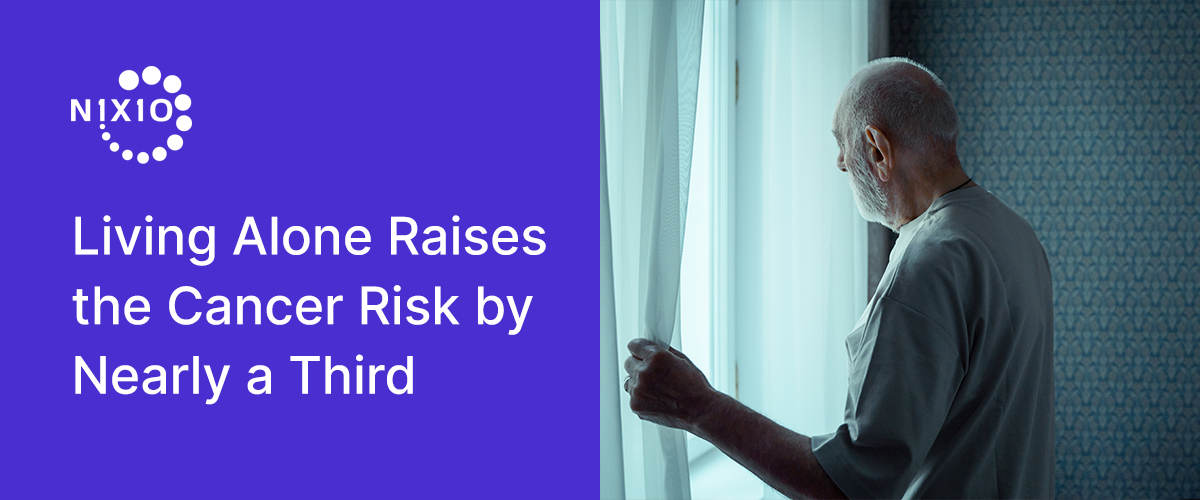In May of this year, the U.S. Surgeon General, Vivek Murthy, MD, issued a surgeon general advisory calling attention to the public health crisis of loneliness, isolation, and lack of connection in our country. He highlighted how the lack of connection can increase the risk of premature death to levels comparable to smoking daily. “Our epidemic of loneliness and isolation has been an underappreciated public health crisis that has harmed individual and societal health,” said Dr. Murthy in a statement. “Our relationships are a source of healing and well-being hiding in plain sight — one that can help us live healthier, more fulfilled, and more productive lives.”
A new study published by the cancer disparity team at the American Cancer Society [ACS] suggests that adults who live by themselves have a 32 percent higher risk of death from cancer than adults living with others. That risk is particularly high for adults between the ages of 45 and 64 who live alone. Their likelihood of cancer death is 43 percent greater than that of their counterparts who live with others.
Drawing on data collected between 1998 and 2019 by the National Health Interview Survey and the National Death Index, Dr. H. Lee, and her team analyzed outcomes for nearly 475,000 adults who were between the ages of 18 and 64 at the study’s start. About a quarter of these individuals lived by themselves, while three-quarters lived with others. Over the course of 22 years, there were close to 6,000 cancer deaths, or around 1.6 percent of people living with others — versus about 3,000 cancer deaths (about 2.5 percent) among those living alone.
In addition to finding an especially high cancer death risk among middle-aged adults, the scientists noted that men who lived alone were 1.3 times more likely to die of cancer than women. In part, this may be because more men (56 percent) than women (44 percent) were living alone. The association was also stronger among white adults living alone than non-Hispanic Black adults living alone, with a 33 percent higher cancer mortality risk for white adults versus 18 percent for Black adults. Adults with higher education levels living on their own faced greater risk as well. Individuals with less than a high school education living alone were 1.26 times more likely to die of cancer, while those with a college degree living alone had a 1.41 times greater risk than their cohabitating peers.
Those who are isolated tend to have more unhealthy habits, according to the study authors. They cited previous research finding that people who live alone are less likely to follow healthy diets and more likely to be severely obese, currently smoke or drink heavily, and have severe psychological stress. “We need to ask individuals if they live alone and if they are lonely, and be ready to respond with specific recommendations,” says Lidia Schapira, MD, an oncologist and the director of the Stanford Cancer Survivorship Program in California“.


